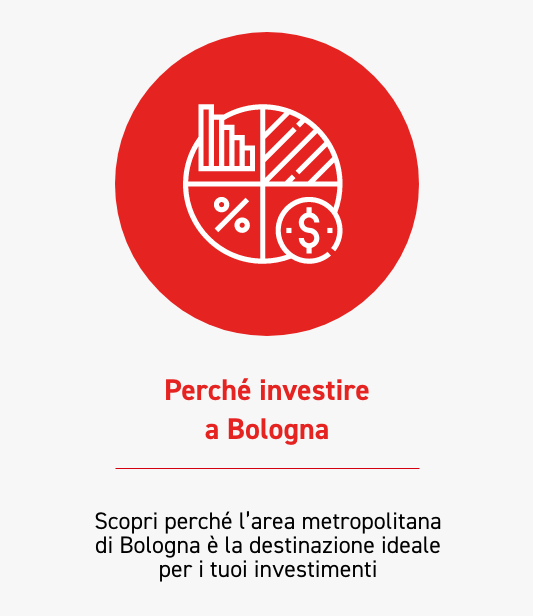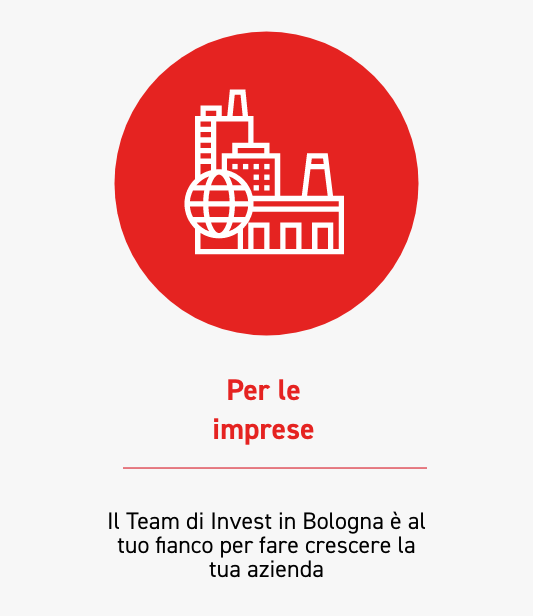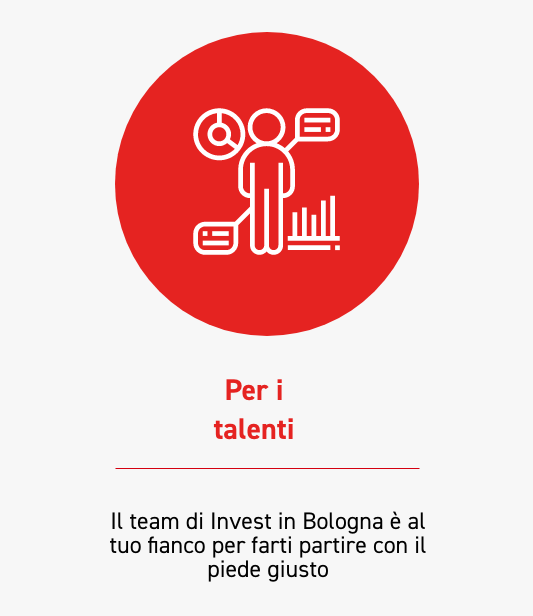

Area metropolitana di Bologna
Scegliere dove far crescere la tua attività è una decisione strategica. Invest in Bologna è il tuo punto di accesso a un ecosistema dinamico, nel cuore di un territorio che unisce innovazione, manifattura avanzata, alta qualità della vita e concrete opportunità di sviluppo.
Bologna accoglie e supporta investitori e imprenditori con filiere produttive competitive, una rete d’eccellenza per la Ricerca, l’Innovazione e la Formazione, e l’Università più antica d’Europa.
Scopri come possiamo accompagnarti nel tuo percorso di crescita.
- News
-

Invest in Bologna supporta gli Obiettivi di Sviluppo Sostenibile


